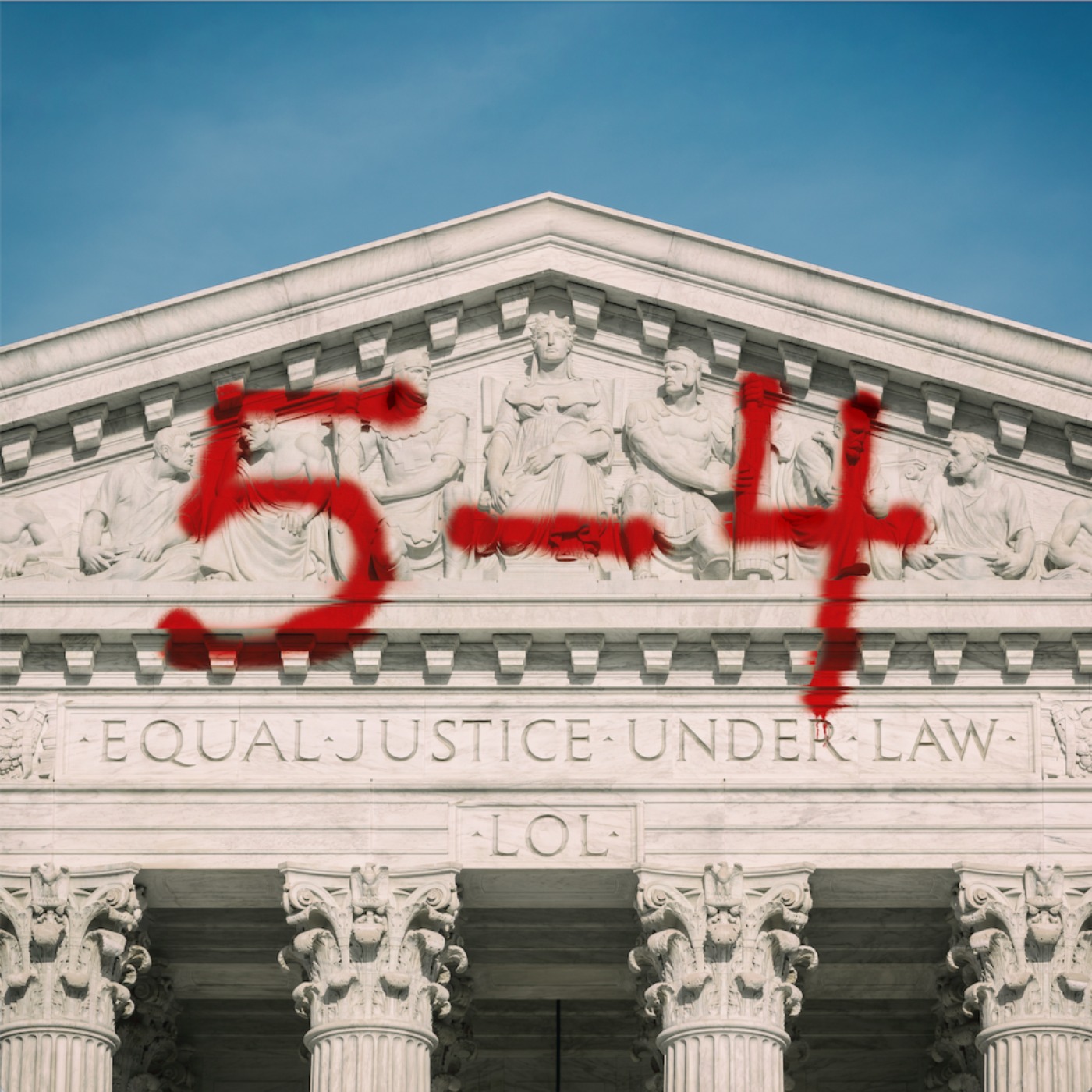Nixon v. Fitzgerald
You can't sue the President if they wronged you, as long as what they did was in the course of their official duties. And maybe possibly if they did it out unofficially out of spite, or because they were just feeling crimey that day. Thank goodness we have this fantastic precedent to help us deal with Trump's many cases!
If you're not a 5-4 Premium member, you're not hearing every episode! To get exclusive Premium-only episodes, access to our Slack community, and more, join at fivefourpod.com/support.
5-4 is presented by Prologue Projects. Rachel Ward is our producer. Leon Neyfakh and Andrew Parsons provide editorial support. Our researcher is Jonathan DeBruin, and our website was designed by Peter Murphy. Our artwork is by Teddy Blanks at Chips NY, and our theme song is by Spatial Relations.
Follow the show at @fivefourpod on most platforms. On Twitter, find Peter @The_Law_Boy and Rhiannon @AywaRhiannon.
Hosted on Acast. See acast.com/privacy for more information.
Advertising Inquiries: https://redcircle.com/brands
Press play and read along
Transcript
Transcript is processing—check back soon.

